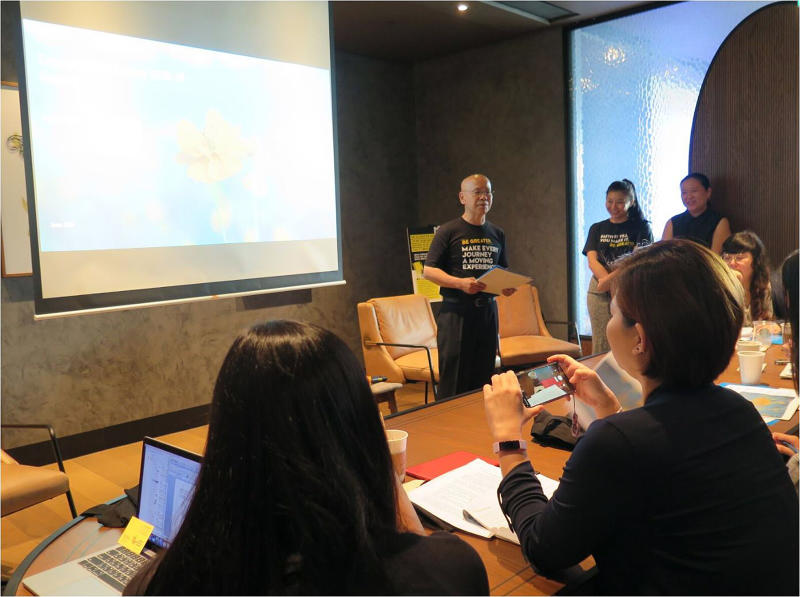Young people are too embarrassed to show kindness in public: Poll
Sign up now: Get ST's newsletters delivered to your inbox

The Singapore Kindness Movement's general secretary Dr William Wan (centre) surmised that youths may find comfort in numbers, and prefer to volunteer in a group than to act on their own.
PHOTO: SINGAPORE KINDNESS MOVEMENT
SINGAPORE - One in four young people hold back from showing kindness in public because they are afraid of being embarrassed, according to the latest findings of an annual survey on graciousness.
Looking stupid or being mocked on social media was cited as deterrents to lending a hand to someone in public by 23 per cent and 11 per cent respectively of respondents aged 15 to 24 interviewed earlier this year, according to the Singapore Kindness Movement (SKM), which conducted the survey.
This even though 39 per cent of the same group had donated money to charitable causes in the past, and 11 per cent had volunteered their time to charitable organisations."Even if you want to help, it may not be received, like giving up your seat - and that can be quite embarrassing," said Pek Ting Yu, 19, a Temasek Polytechnic student.
SKM's general secretary Dr William Wan surmised that youths may find comfort in numbers, and prefer to volunteer in a group than to act on their own. He said he hoped that volunteering would make young people feel more comfortable about helping others in time.
Such reluctance may be something that goes away with age, as people in older age groups seemed to be less bothered by others' perceptions of them. A far smaller percentage of older people said they would not help someone in public out of embarrassment.
Instead, the main reasons given by older people for not giving help was being unsure of what to do to help, or not noticing that help was needed.
Generally, the survey, which polled more than 2,000 residents in two waves, found that people think Singaporeans are making progress in becoming a more gracious society.
Between the first wave, conducted between August and September last year, and the second wave, conducted between February and March this year, more people felt that Singaporeans were less entitled, more accepting of foreign residents, and capable of acts of graciousness such as returning trays and giving way to others on pathways.
Overall satisfaction in relationships with neighbours also increased from 85 per cent in last year's survey to 88 per cent in this year's.
The survey also found that parents feel they should play the primary role in educating their children about values of graciousness.
Fewer parents in the second wave of interviews, or 18 per cent, said they lacked time to spend with their children compared with 24 per cent of parents in the first wave.
But more parents in the second wave, or nine per cent, also felt what they taught was not reinforced by their child's environment, up from six per cent in the first wave.
Such external influences may come from friends or the internet.
This concern was stated predominantly by parents of younger children, with 16 per cent citing media as an obstacle, up from nine per cent in the first wave.
To combat this, SKM said it has provided various resources such as animated videos on YouTube for parents to share and discuss with their children.
To encourage young people to set aside their shyness in helping others, SKM will also be organising a second collaboration with all 143 Starbucks outlets as part of their Be Greater campaign.
From July 8 to 12 this year, Starbucks patrons who are spotted sharing their tables with others will receive a special edition Starbucks Be Greater pin, and a dollar off their next drink purchase, which can be redeemed by July 14.
Dr Wan said: "I am heartened to see the perception of graciousness improving in Singapore.
"SKM will continue to remind Singaporeans that kindness starts from within, and everyone is capable of greatness."


